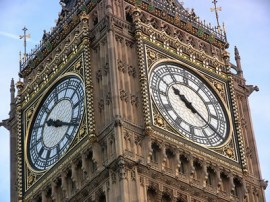
A regular argument put forward by anti-Europeans as grounds for opposing the EU is that parliament should be sovereign. Nothing should override the powers of the elected MPs sitting at Westminster.
We federalists have said, in contrast, that it is not parliament that is sovereign but the people. The institutional arrangements that govern them, or rather by which the people govern themselves, can be changed as and when it suits the people to do so. The legitimacy of British membership of the EU is therefore sealed by the fact that the people have approved it: in the referendum on membership in 1975 and in every general election since the late 1950s.
We are now seeing, in the form of the House of Commons expenses rules, where the doctrine of parliamentary sovereignty leads us. If an MP wants to spend money on a floating island for his ducks, or on cleaning out his moat, or on a plasma screen TV, then that’s fine. MPs can write rules to permit that. Anyone who professes to believe in parliamentary sovereignty has no recourse other than to vote for a different MP at the next general election. And where the MP sits in a safe seat with an enormous majority, that might not be very successful.
On the other hand, those of us who have long been suspicious of the doctrine of parliamentary sovereignty have seen our doubts confirmed. The interests of national parliamentarians are not necessarily synonymous with the interests of the nation as a whole. It is a pity that it has taken such a financial scandal for this principle to come to wider attention.
“Governments are instituted among Men, deriving their just powers from the consent of the governed. That whenever any Form of Government becomes destructive of these ends, it is the Right of the People to alter or to abolish it, and to institute new Government, laying its foundation on such principles and organizing its powers in such form, as to them shall seem most likely to effect their Safety and Happiness.”
